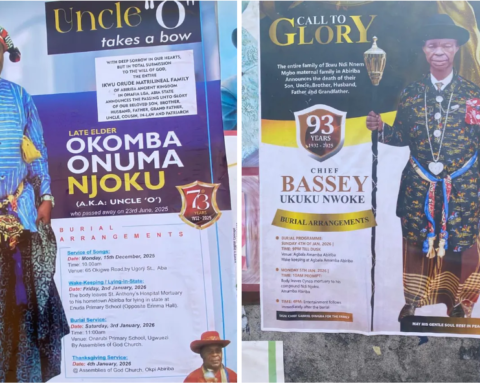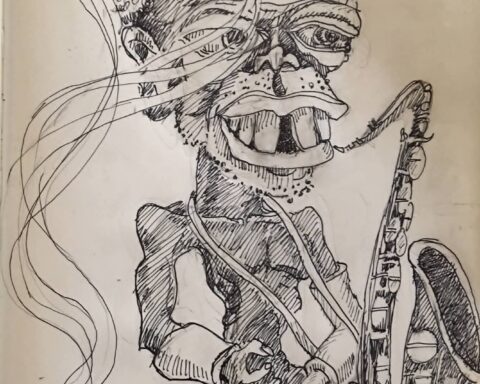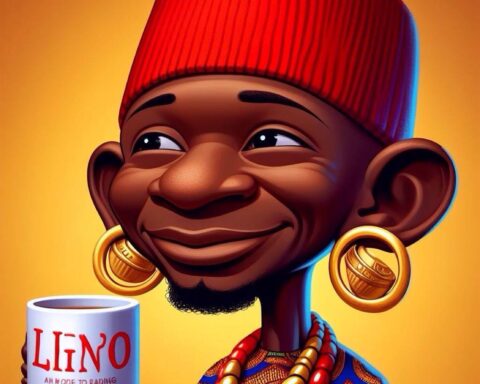By Prince E. Umoh
I HAVE listened to the chatter. I have seen the videos. I have also heard the whispered claims from those who say they know her, that this lady is a habitual kolos person. Perhaps that may be true. But in all honesty, whether she is or is not is not the real issue before us. My deeper concern lies in the treatment she received and what it reveals about the moral and legal state of our society.
We have, as a people, concluded on her character based entirely on an unverified social media post. We have a trial by comment section and judgment by virality. But while that mob verdict was still simmering, a far graver wrong unfolded: she was physically dragged down a staircase, her clothes torn until her private parts were exposed to the full glare of cameras, and the video broadcast to the world. That is not law enforcement. That is not discipline. That is public degradation.
Let us be clear: Section 34(1) of the Constitution of the Federal Republic of Nigeria, 1999 (as amended) gives every individual the right to dignity of person. It expressly forbids torture, inhuman, or degrading treatment. This protection is not conditional upon moral standing, social class, or alleged criminality. Even prisoners condemned to death are clothed in this constitutional guarantee.
What happened here is also a direct affront to Nigeria’s obligations under international law. Article 5 of the African Charter on Human and Peoples’ Rights, domesticated in Nigeria, provides that every individual shall have the right to the respect of the dignity inherent in a human being and to the recognition of his legal status. The United Nations Convention on the Elimination of All Forms of Discrimination Against Women (CEDAW) condemns any act that humiliates or violates the bodily integrity of women.
Our courts have not been silent on this. In Uzoukwu v. Ezeonu II (1991) 6 NWLR (Pt. 200) 708, the Court of Appeal underscored that human dignity is a value so inherent it must be protected at all costs. In Fawehinmi v. Abacha (2000) 6 NWLR (Pt. 660) 228, the Supreme Court reinforced that constitutional rights are enforceable against both state actors and private persons where violations occur. And in Okechukwu v. EFCC (2015) LPELR-24816(CA), the Court of Appeal condemned the EFCC for acts amounting to degrading treatment, noting that due process is the only acceptable route in dealing with allegations.
Even if for the sake of argument she truly held onto a fire extinguisher in a bid to disrupt operations, that is at best a matter for security control and lawful arrest. There is no Nigerian statute that empowers an airline, its staff, or its contractors to strip, humiliate, or parade any suspect, male or female. Such actions cross from discipline into criminality. Under sections 351 and 355 of the Criminal Code, that dragging and tearing is assault and unlawful wounding.
The Association of Airline Operators were quick to issue an indefinite air travel ban on this young lady. Strangely, they were not as swift in doing so in previous instances cited by them involving more prominent individuals. Of course, this young lady is a nobody, a low hanging fruit to be made a scapegoat. There was no decency of waiting out the court process before meting out corporate punishment. The haste betrays bias and the double standard is glaring.
Ibom Air’s conduct, in my view, is untowards, condescending, and a stain on corporate social responsibility. An airline that can fly at thirty thousand feet should know the altitude of basic human rights. A corporation that courts the public’s trust should not be the same one eroding the dignity of a woman in full public glare.
We must resist the lazy moral shortcut that says, “She deserved it.” That thinking gives a blank cheque for abuse and shifts the standard of justice from the Constitution to the whim of whoever holds the camera.
Today it was a habitual kolos person. Tomorrow, it could be you or me, caught in the perfect storm of allegation, virality, and institutional overreach. Our character flaws, real or imagined, cannot strip us of our humanity. And our humanity must not be stripped, quite literally, for the entertainment of the crowd.
I do not write this to excuse wrongdoing. I write because one wrong does not license another. The Constitution is not a menu from which we pick only the rights we like. It is a binding shield for every citizen, in season and out of favour. To degrade one person’s dignity is to set a precedent that will one day come for us all.
Our society is failing, and we are all actors in its tragic play. Until we learn that justice must be blind to status and that dignity belongs to every human being, we will keep building a country where the powerful escape scrutiny and the powerless are made into public spectacle.
Prince Umoh is Ikpe Mbak Eyop in Akwa Ibom State.
Follow us on all social media platforms @dailyquery for news and analyses around the globe.



























